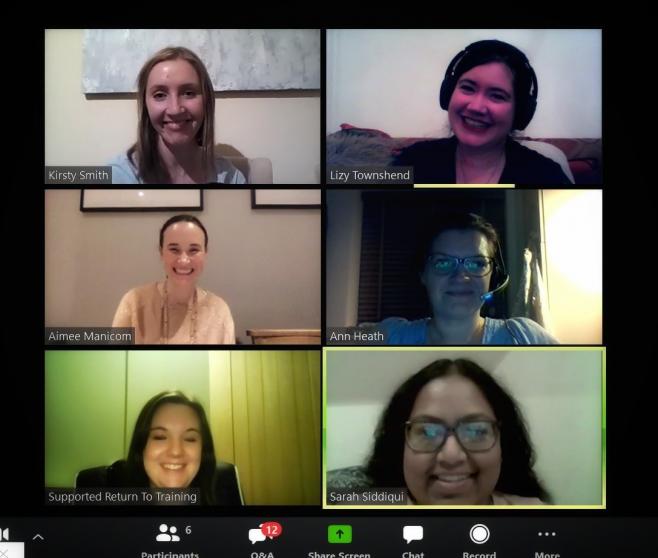You are here
HEE team rises to COVID-19 challenge to help doctors returning to training
29 April 2020

Help is at hand for doctors returning to training during the coronavirus crisis.
Around a tenth of the UK’s doctors in postgraduate medical training are taking a break at any one time, for a variety of personal and professional reasons.
And returning can be daunting - probably never more so than during the current COVID-19 pandemic.
But, thanks to the work of five Health Education England (HEE) Training Fellows and the local SuppoRTT offices, there’s a wealth of help available to ease that process.
Established 18 months ago, the Supported Return To Training (SuppoRTT) programme provides advice, information and practical courses for any doctor who has taken more than three months out of training for parental leave, health reasons, a career break, voluntary work or any number of other reasons.
The current National Supported Return to Training Fellows include three doctors on sabbatical - Dr Sarah Siddiqui, Dr Lizy Townshend, and Dr Ceri Chadwick. In addition, two Fellows Dr Jenny Barber and Jen McLeavey, have had to return to work early to join the COVID-19 frontline.
SuppoRTT’s remaining fellows and Education Fellows Aimee Manicom and Kirsty Smith, have ensured its work can continue during the coronavirus crisis, developing a series of webinars, which have already attracted more than 2,600 registrants, with the support of SuppoRTT Manager Ann Heath.
Dr Siddiqui says it’s all about arming doctors with the confidence and practical skills they need to resume their training, with a firm focus on patient safety.
“With the current pandemic, for example, there’s a huge call for doctors to come back early from their time out. Everyone’s asking, ‘how can we help?’, but for some there’s a sense of guilt – some may feel out of their depth, while others will be wondering how their specialty is relevant.
“We aim to support their wellbeing, and to equip them with some training that will help ease them into redeployment. That could cover everything from respiratory failure and resuscitation to communicating bad news."
There have been 27 live webinars so far since the national emergency was declared, hosted by specialist trainees and expert coaches, with 95% of attendants finding it helpful or very helpful. A programme of podcasts will also be available to stream soon.
SuppoRTT webinars
A series of webinars; knowledge refresher and wellness sessions for doctors who are coming back from a break from clinical practice into an unprecedented and uncertain period of clinical work.